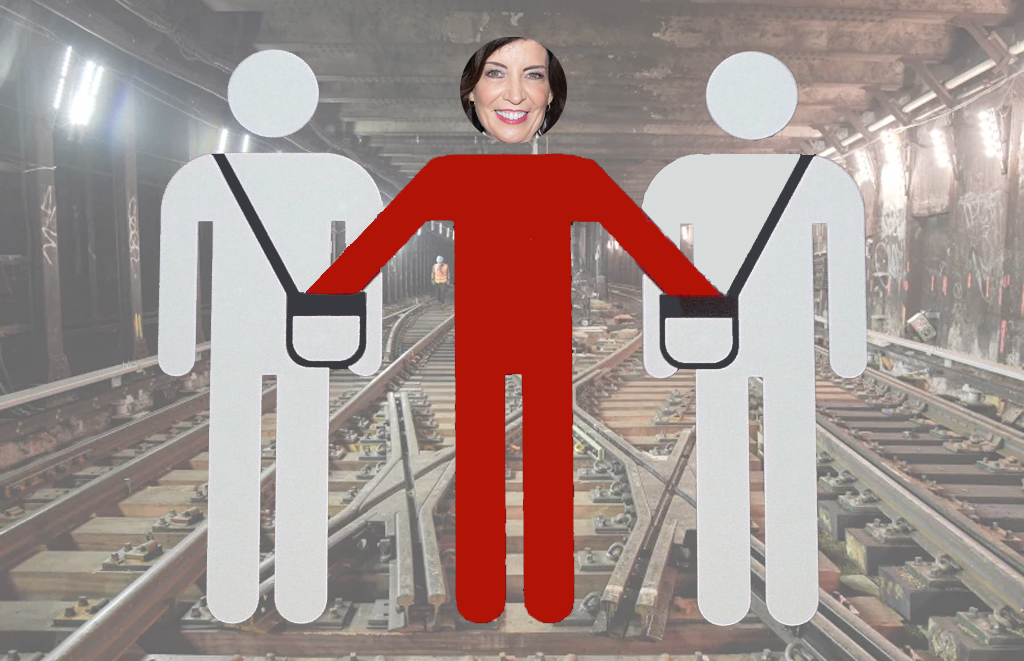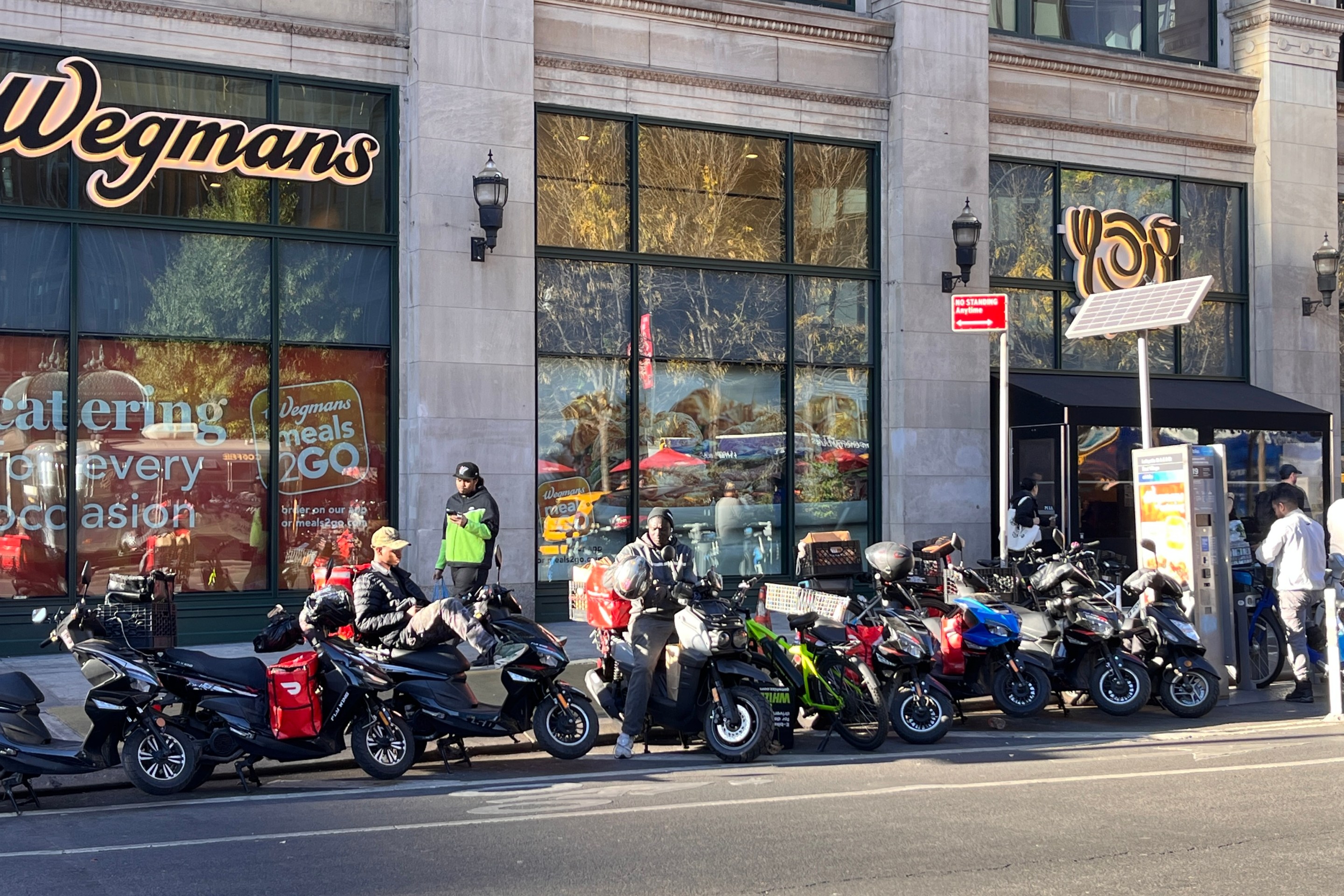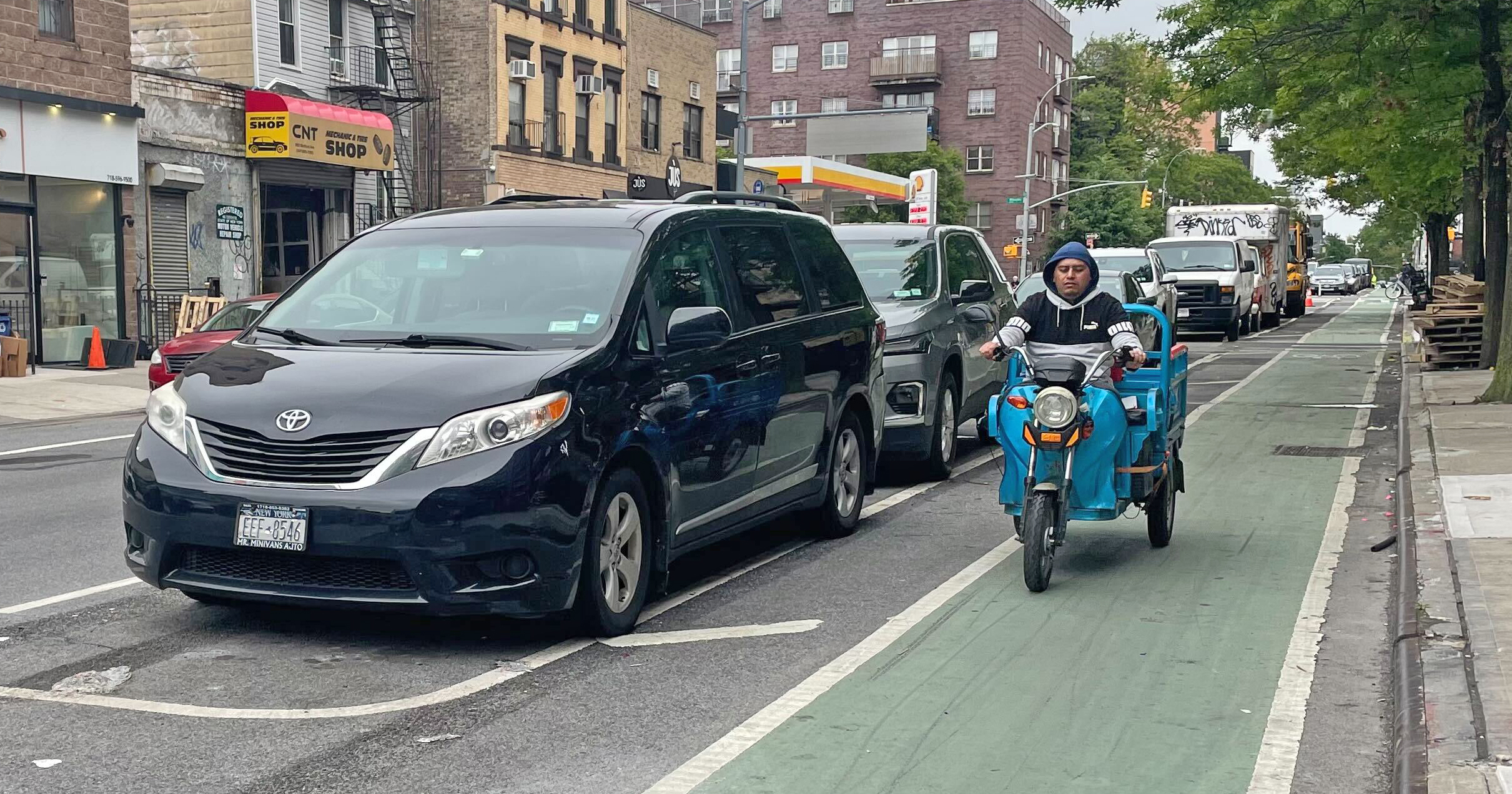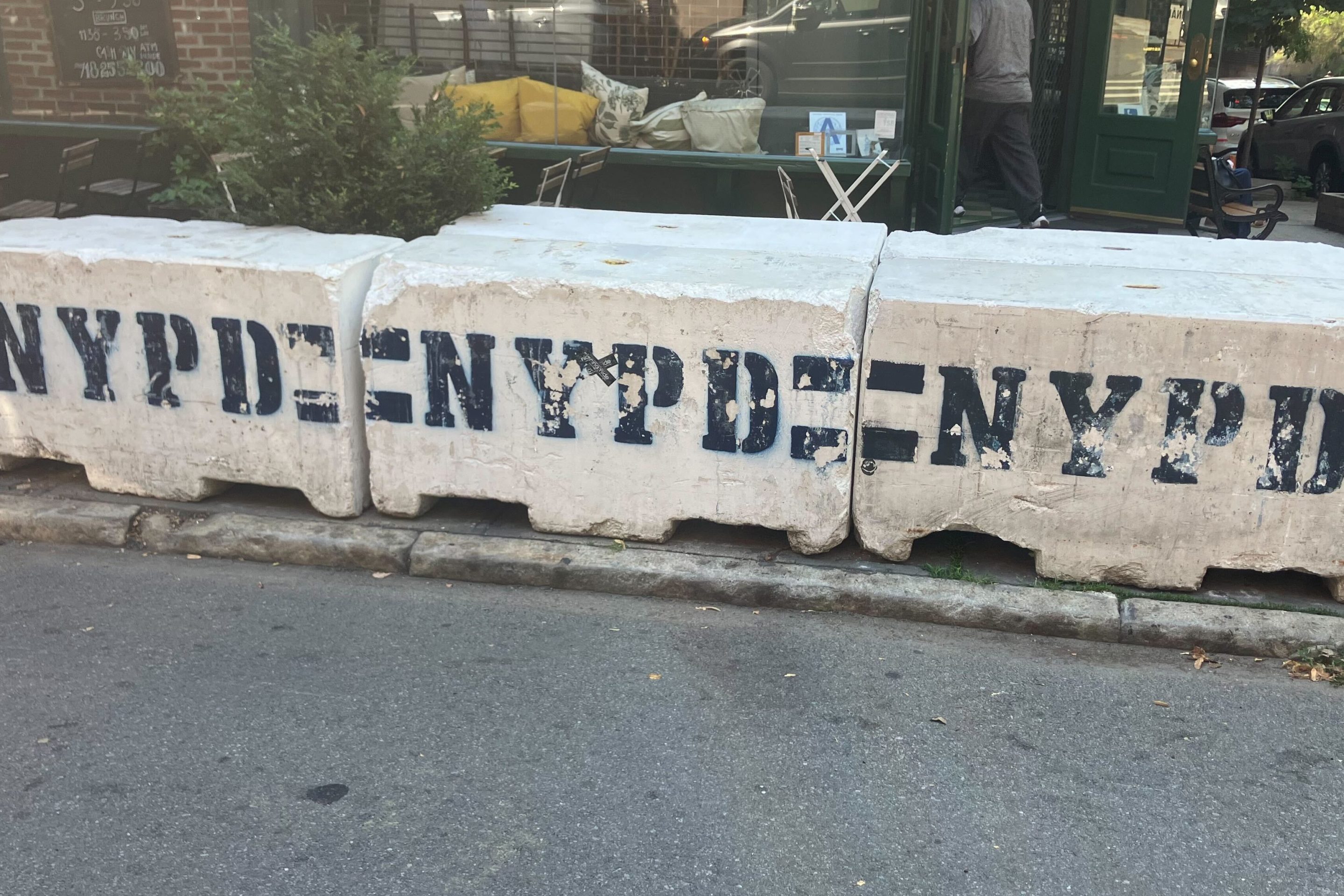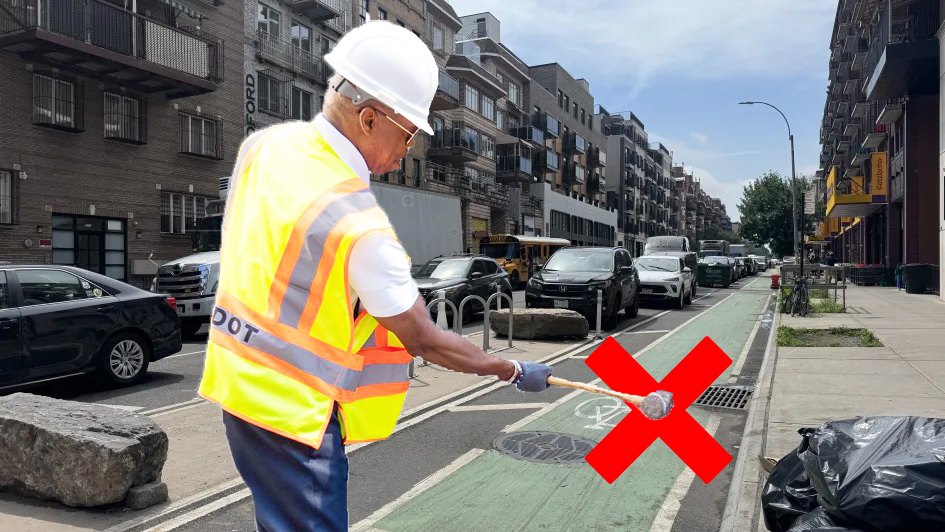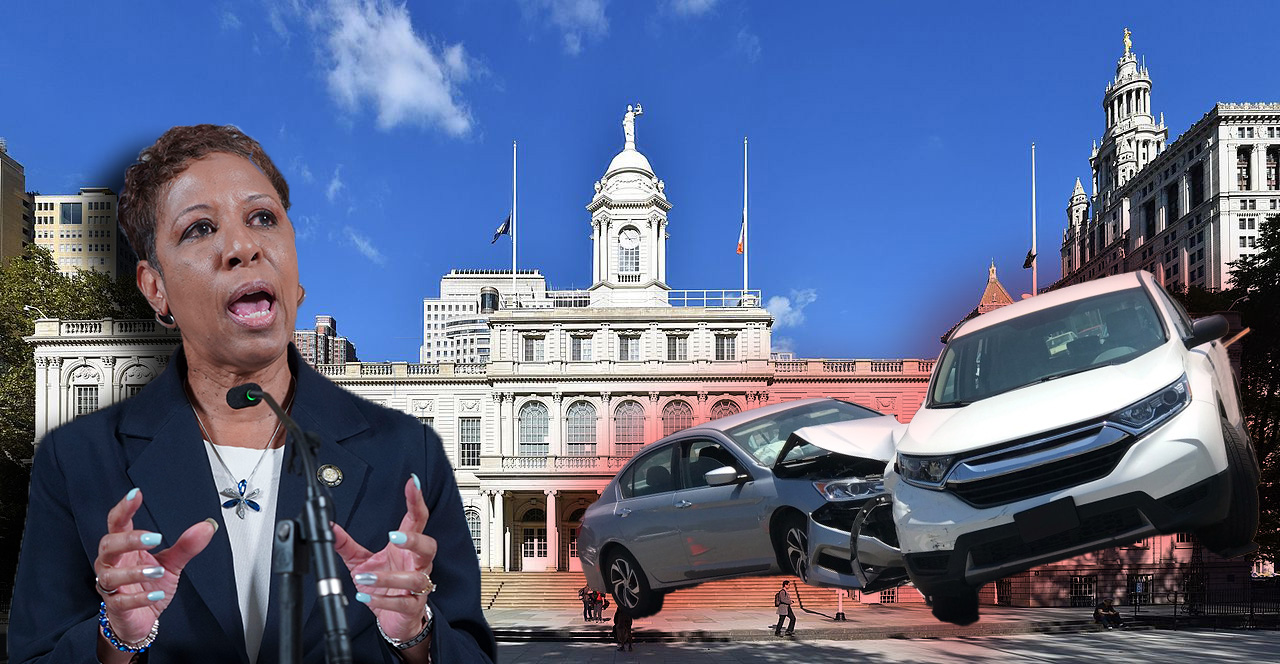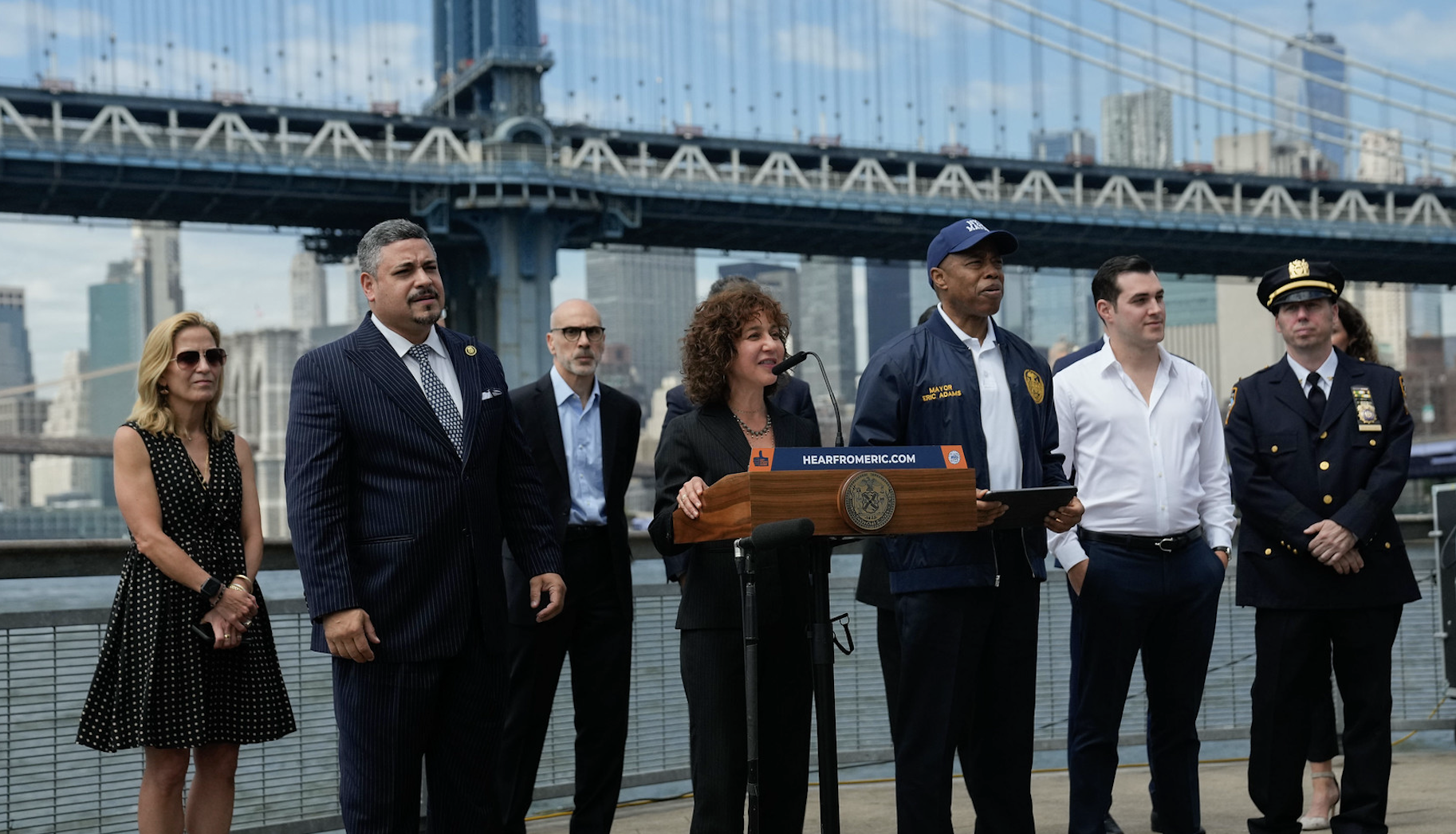They spelled it out in a pretty picture.
Congestion pricing is still the only policy idea being discussed that can raise money, reduce traffic, improve air quality and make the metropolitan area more livable, a new report from the MTA's in-house rider advocacy organization shows.
The Permanent Citizens Advisory Committee to the MTA compared congestion pricing to a number of other proposals that people have tossed on the table as substitutes for congestion pricing since Gridlock Gov. Hochul superseded state law to pause the traffic toll. And as the colorful and easy-to-read chart shows, every other idea out there can, at best, raise some money for the MTA capital plan. But nothing else delivers congestion pricing's benefits.
"Of the funding mechanisms proposed as alternatives to congestion pricing, many are regressive and would tax even more New Yorkers than the small number of mostly affluent people who drive into the CBD every day, others vastly inadequate to fill the gap, and some both," the PCAC wrote. "And none of them meets the three core goals of congestion pricing: reducing traffic, improving air quality – while providing funding for mitigation in Environmental Justice communities — and raising critical funding for transit improvements."
The other proposals on the table are either politically unlikely — like new taxes on the wealthy, hiking a regional sales tax increase or increasing the payroll mobility tax — vague, such as redirecting casino license money or allowing more insidious forms of gambling in New York, or just outright stupid, like giving the MTA a $1-billion IOU or selling naming rights to subway stations.
As politically unpalatable as they may be for state pols, the proposed tax hikes are the only proposals that can raise a steady stream of revenue that can underwrite $15 billion in bonds for the MTA's 2020-2024 capital plan (anticipated gambling revenue will help the MTA's day-to-day operating budget). And none of those options cut into driving by reducing the number of cars on the road in the region, which is something congestion pricing does very well.
As the Federal Highway Administration found, instituting the traffic toll would reduce car trips for work to Lower Manhattan by 6 percent and reduce the total number of vehicle miles traveled in the region by 8.9 percent. A higher sales tax or naming the 23rd Street 1 train stop "Pret A Manger/23 Street" will not do those things.
Left unsaid in the report is that another problem with picking one of these ideas to replace the money from congestion pricing would also leave a hole in the 2025-2029 capital plan, which is supposed to be revealed in September. The MTA has been telegraphing that the next capital plan will be even larger than the record $55 billion 20-24 capital plan, and the agency has spent the past year laying out the many expensive pieces of the transit system that need to be brought up to a state of good repair.
That this conversation is happening at all is a result of Hochul's stunning decision to stab the transit system in the back days before congestion pricing was supposed to begin. The MTA has said that if Hochul doesn't restore congestion pricing or find an alternate revenue source to make up the money it was supposed to raise, the agency has to defer or cancel $16.5 billion worth of projects in the current capital plan.
In addition to the deferred capital work, the MTA recently revealed that the pause would eat a $1-billion hole in the agency's operating budget over the next five years due to a combination of higher borrowing costs due to earlier than planned borrowing for capital work, a lack of additional ridership from people switching from driving to mass transit and needing to do more expensive maintenance on equipment that's well past its useful life.
For her part, Hochul remains testy whenever people question why the people to whom she professed courageous support for congestion pricing for many years should now trust her to fix a funding problem that didn't exist until she created it.
"Everyone wants to present a scenario: 'If what I say will happen does not happen,'" the governor said at a press conference on Thursday. "[But] I have said it will happen. It is not a question of 'if.' It is a question of 'when.'"
She was also testy about when the when is.
"I've said this from the beginning: temporary pause means temporary pause," she said. "I appreciate all the interest on an hourly basis on this, but that's all you're going to get today."
